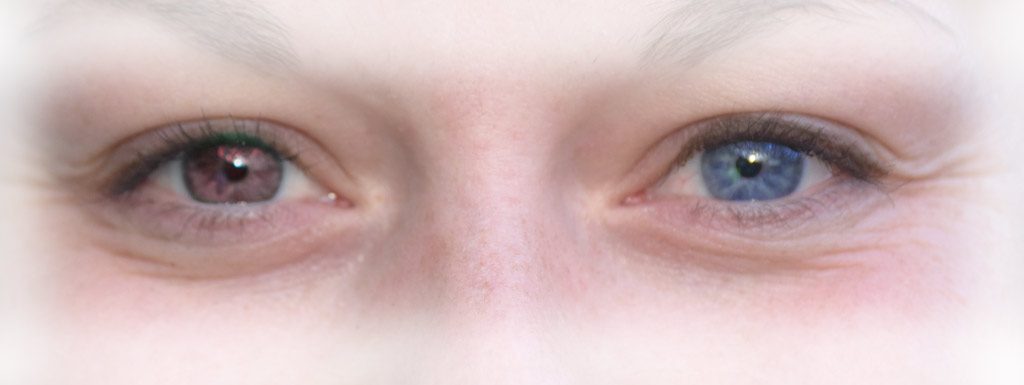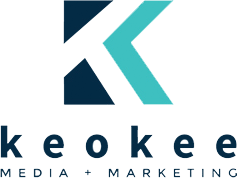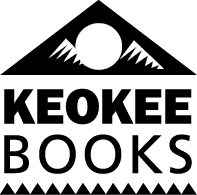Seeing With Different Eyes
From the Summer 2017 Issue

Local nonprofits find common cause in Bonner County
In a divided time, supporters of local nonprofits find common cause
Bonner County’s hundreds of volunteer organizations provide support, health and medical care, food and education when it is needed most. They help shape economic and social policy, and enrich our lives with art, poetry and music. Most remarkable in these divided times is that each of these organizations is served by people holding a wide range of sometimes conflicting political opinions. How do they do it?

“I can’t imagine a life where I didn’t make a difference,” said Nancy Hadley, the only woman ever to serve on the Idaho Fish and Game Commission. She did so when the trees at Farragut State Park were the hot issue. “There was lots we agreed on. We put that in the middle, worked on those issues and agreed to disagree about the rest. The circle of what you agree on gets bigger, disagreements get smaller. Before long we had solutions for a lot of things. We all come with different backgrounds. We can help each other see with different sets of eyes.”
Our local Rotary Club of Sandpoint funds projects ranging from the Pend Oreille Bay Trail to the Book Trust program. In 1985, Rotary International undertook a project to eradicate polio world wide. And now the world is 99.9 percent free of polio. How is that possible?
According to incoming president Angela Oakes: “We’ve got collective outcomes nobody wants. The usual communication that occurs is ‘Divide and conquer,’ or ‘My facts are better than your facts.’ Rotary gets past that by helping and, more importantly, empowering one another. Rotary’s motto is service above self. We do what we need to do to get the job done. Our secret? We champion things. We’re not against anything like homelessness, abuse. We’re for things. Service changes the brain chemistry or whatever, changes our outlook, our ability to cooperate and sense of well being.”
Outgoing president Dyno Wahl adds a telling story. “Rotary is the most diverse group in town, ranging from ultra-conservative to ultra-liberal. We have a nondenominational invocation before every lunch meeting — it can be a prayer or poem or thought. At the first meeting after the election, there wasn’t any gloating or ‘poor me’ — and I wasn’t the only one crying. It was a moment when we were more aware of our similarities than our differences. We connected with respect at a deeper level.”
Wahl is the executive director for the Festival at Sandpoint — another program that brings together a wide range of political viewpoints. “Everyone loves music,” she said. “It doesn’t matter what your personal views are. We have conservative donors who fund people like Bruce Cockburn (a liberal Canadian singer-songwriter and guitarist). The work transcends.
“Sandpoint provides a place for business people to put service before self,” she added. “Auctions are successful here because business people are so generous. Sandpoint is off the ‘greed grid.’ There’s no one who is successful here and who doesn’t give back. It’s not always like that in cities.”
According to the Association of Fundraising Professionals, rural donors donate a statistically significant higher percentage of their income to charity than urban donors. And that doesn’t count volunteer time!
Barb Perusse, a former Kinderhaven board member, said: “We put politics aside to focus on the mission. We believe in kids and we believe in the community. We have fun together with things like the Festival of Trees. When politics rears its ugly head, we don’t allow it. One time a board member was running for office and wanted to wear a campaign button to an event. Upon consideration, the board nixed it, and the member agreed it was the right decision.”
Current Kinderhaven board member Kathy Chambers explains why the board is so diverse politically: “We populate our board with certain skill sets, not just retirees or people with time to spare. Where we are weak, we fill holes. We have people with backgrounds in law and finance, entrepreneurs, community leaders, advocates in children’s mental and physical health, who are all hard workers. Politics never enters into the process; it’s not even on the radar. Remedying the effects of child abuse is not a political issue.”
She said: “A small percentage of our budget comes from state and federal funds under [the Department of] Health and Welfare. The bulk of it, however, is raised through grants and private donations. Some donors are conservative, others are more left-leaning. All are valued, and key to Kinderhaven’s longevity and continued growth.”
What about conflict on the board? “Instead of each side convincing the other of who is right, when we focus on working together to be part of a solution, we accomplish so much more,” said Chambers.
“Politics? What politics? Angels have no politics,” said Kate McAlister, a long-time member of the Angels Over Sandpoint, a group that works to serve those in need in our community. “We’re all there together when we see a need: people can’t afford dental work or mental health care, need help with utilities or rent, or veterans or seniors need a little help, we can provide stop-gap measures.
“We are always willing to do what it takes to get the job done. For the school backpacks program we get a supply list from the schools, which may include things like toothbrushes and paste, coats and shoes, and we have great partners that help us, like Walmart and Staples plus our own fundraisers. Sometimes donors will ask us to clean a house and there we all are together. People have donated whole houses of furniture, even a fishing boat for us to auction off.”
McAlister is also president and CEO of the Greater Sandpoint Chamber of Commerce. Surely there must be times when politics gets in the way there? “Not really. We backed the school levy, because it’s not a political issue. Public education is essential. After our meetings are adjourned, we have a time for sharing. We learn about the community, what people are doing, who has been hit with illness or accident.”
McAlister, who made a bid for the state representative position for District 1A last fall, said: “When I ran for office, members talked about that — but it wasn’t divisive. Everyone was very supportive.”
Jim Zuberbuhler spends two days a week on his financial practice, his second career after his work with Forrest M. Bird Charter School, PTech, Kaniksu Land Trust, and the Long Bridge Swim. “When you stay focused on solutions there is less room for polarization, or ‘alternative’ facts; these kinds of things take a backseat for people who are truly engaged,” he explained.
“Poverty is a core issue in our community. We need to shine a bright light on it regularly. There is so much to do: we can leave the house, drive to work, go to the mountain, the lake, go out to dinner and not be aware of poverty.
“I’ve been intentional about building diverse organizations for 30 years. I want different ideas, I want the whole spectrum. It’s the same in my financial practice. We talk a lot about politics — you have to. When a couple comes in with different ideas about money, they do better.”
And that’s the baseline for our local nonprofits as well — when people come together with different ideas, and when they treat those differences with respect, they do better. For themselves, and for us all.
Kenneth Cloke, a specialist in mediation at the global level and a part-time resident of Hope, said: “Communities are easier to destroy than to create or sustain. They emerge when they work to achieve the same goals, discover they share similar values, go beyond what they thought they could do.”
John Reuter, a former Sandpoint city councilman and political activist now living in Boise, warned: “The ideological divide is joined by a physical divide — people of common political beliefs live surrounded by neighbors who share their politics… . We are losing the two key elements that hold us together: a common place and a shared political system. We live in different communities and our political system rarely leads to common cause, but rather bigger fights and demonization.”
While our nonprofits are negotiating this ideological divide with skill, can this ability be translated into our fractious local political process?
One sign that it might comes from Bonner County Commissioner Dan McDonald, who has recently taken to social media to call on those engaging in political discussion to improve their behavior and speak with respect.
“When we decide to retreat to our respective corners, we can’t get anything done. Instead, let’s focus on the things we agree on, and go from there. If you stifle an opponent’s opinion, then you’ll never get a good idea. When you stop listening to other people, then you have trouble,” he said.
McDonald has volunteered with Kinderhaven, the Panida Theater, Sandpoint Babe Ruth baseball and more, and the answer to avoiding conflict, he said, is simple. “The key is to stay focused on the goal.
“At the end of the day, we’re all here to do a job,” he added. “So let’s get the job done.”
Trish Gannon contributed to this story.





Leave a Reply